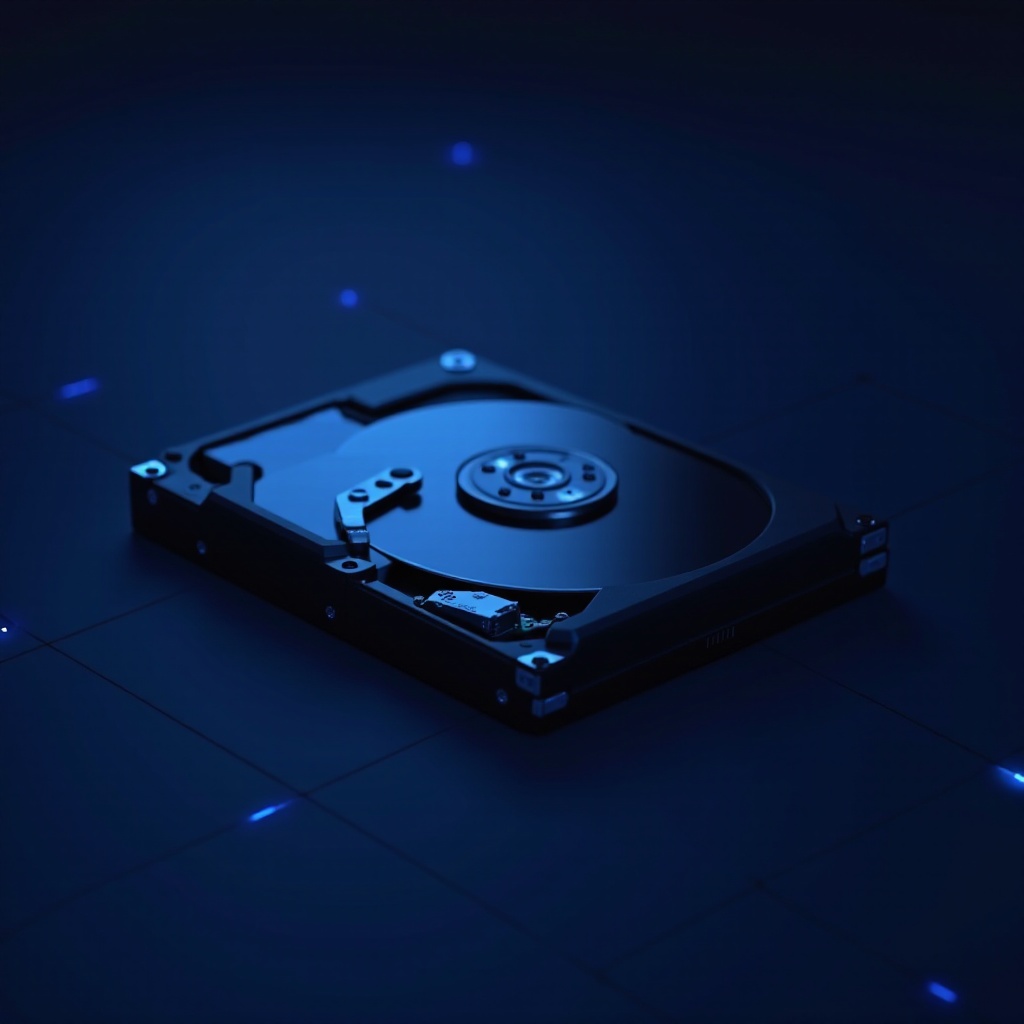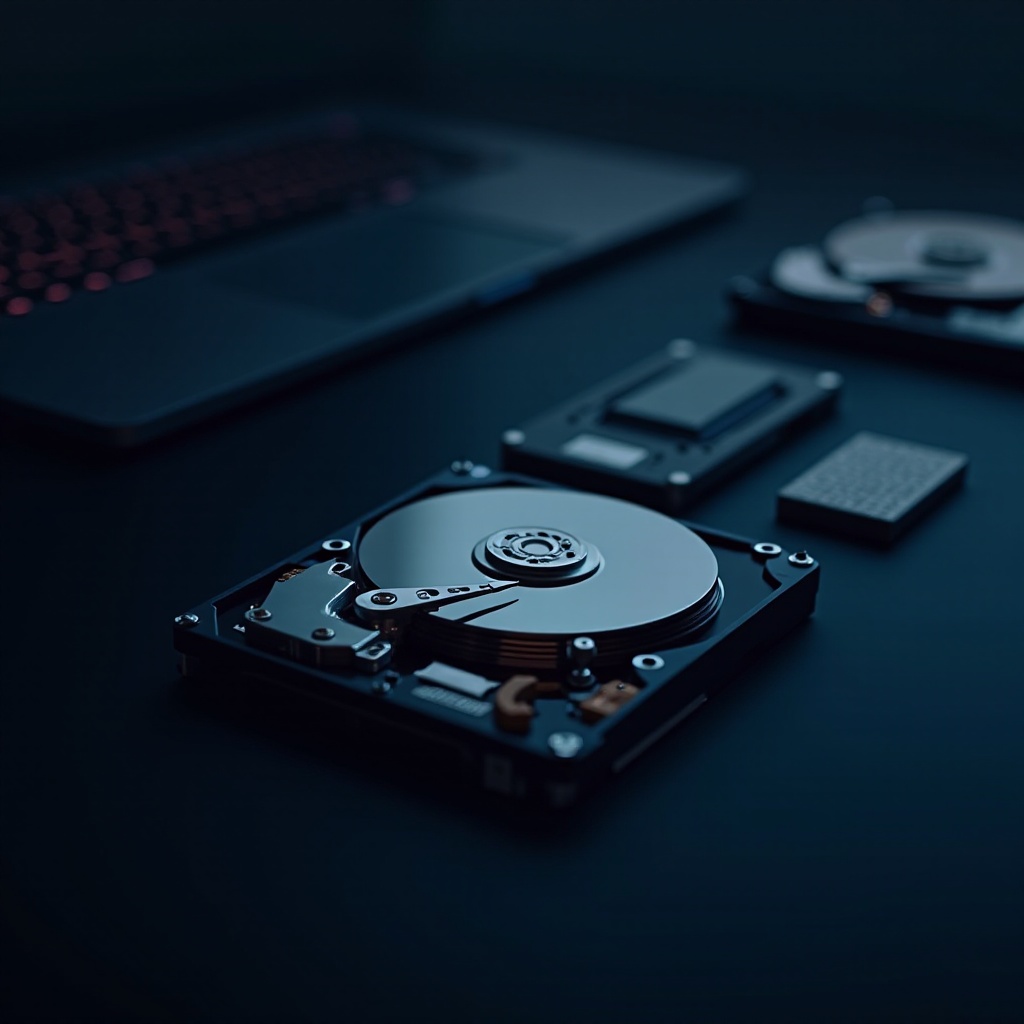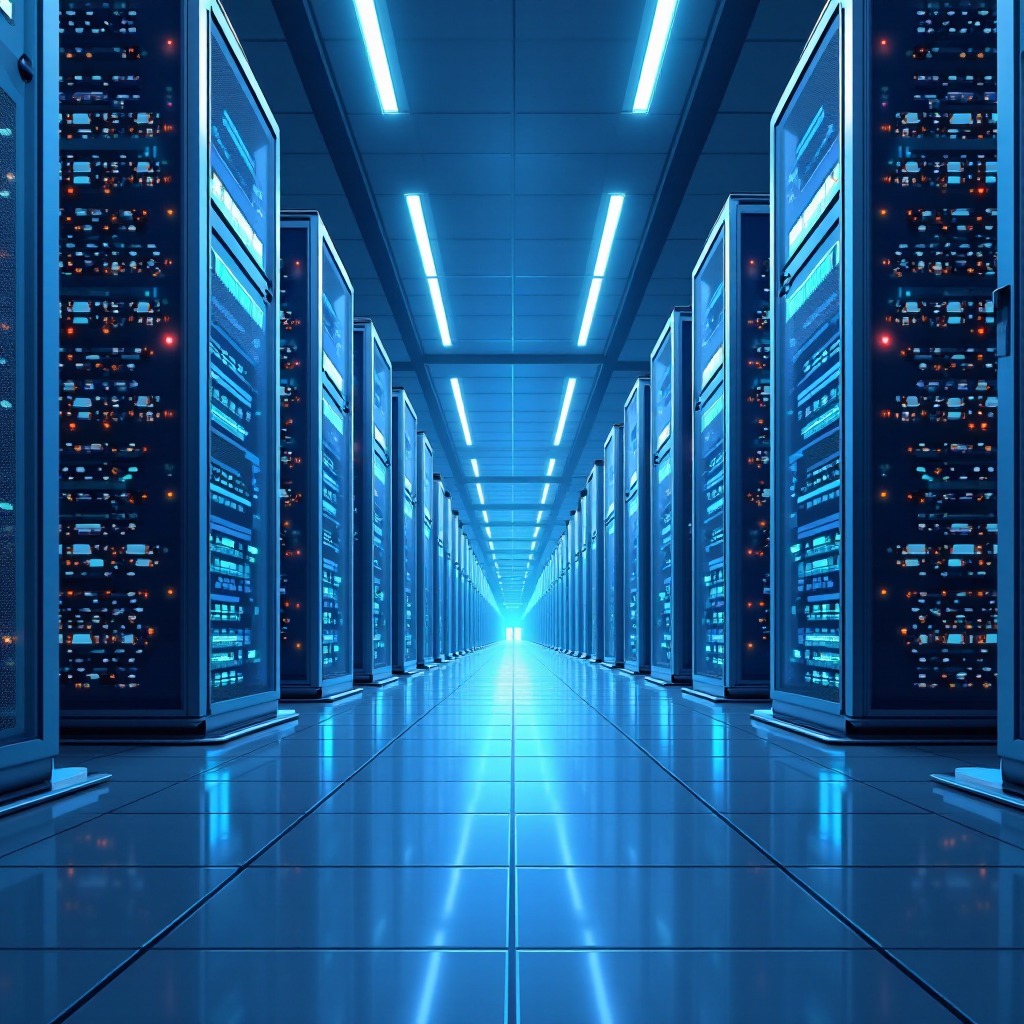Introduction
Choosing the right storage device for your computer is crucial. Storage capacity not only determines the amount of data you can store but also affects overall system performance. Understanding the range of available storage devices and their capacities can significantly aid in making informed decisions that align with your specific needs.

Understanding Computer Storage Basics
To comprehend the scope of storage capacity, it’s important to grasp the difference between primary and secondary storage. Primary storage, typically known as RAM, provides temporary, high-speed data access that your computer’s processor needs to run applications. However, secondary storage is where data is saved long-term, including your applications, operating system, and personal files.
Primary vs. Secondary Storage
Primary storage is volatile, meaning it requires power to maintain stored information. In contrast, secondary storage devices retain data even when the power is off. While primary storage is essential for immediate data access and speed, secondary storage provides the large capacity needed for saving data permanently.

Types of Storage Devices in 2024
With technological advancements, users now have several types of storage devices to choose from, each with unique attributes and advantages.
Hard Disk Drives (HDDs)
HDDs use magnetic disks to store data. They are favored for their high capacity and affordability, making them ideal for bulk storage requirements. Though they might not be as fast as other types, their cost-effectiveness and reliability keep them relevant, especially for backup and archival storage.
Solid State Drives (SSDs)
SSDs consist of flash memory, enabling quicker data access times. They are perfect for tasks requiring high-speed data retrieval, like running complex applications or games. Despite their higher price point, SSDs are preferred for performance-sensitive applications owing to their speed, reliability, and resilience against physical damage.
Hybrid Drives and Beyond
Hybrid drives merge the best of HDD and SSD technologies to balance speed and storage capacity. While offering the vast storage capacity typical of HDDs, they leverage SSD components for faster data access, making them a versatile choice for everyday users seeking a middle ground.
The Largest Storage Devices Available
As technology advances, so too does the capacity of storage devices, driven by increasing demands for data storage in personal and professional spheres.
High-Capacity HDDs
Latest HDD models offer storage up to 20TB, ideal for users requiring substantial data storage at home or enterprises demanding extensive databases or media libraries.
Advanced SSD Technologies
While traditionally smaller in capacity compared to HDDs, recent SSD models now offer robust storage capabilities, with capacities reaching upwards of 16TB. This makes them suitable for users prioritizing both speed and capacity in their storage devices.
Hybrid Solutions
Integrating vast HDD storage with SSD speed, hybrid solutions are tailored for users needing a balance of high-performance and large data capacity. With advancements allowing for larger SSD caches, hybrid drives now handle even more demanding tasks than before.
Key Features to Consider When Choosing a Storage Device
Understanding key factors can streamline the selection process of a storage device suited to your preferences.
Speed and Performance
For tasks requiring rapid data access, like gaming or video editing, SSDs provide unmatched speed. For general storage, HDDs or hybrid drives might suffice, offering a cost-effective alternative with reasonable performance.
Reliability and Durability
Devices without moving parts, such as SSDs, tend to offer better durability and reliability than HDDs, making them ideal for scenarios prone to physical shocks or requiring data consistency.
Cost vs. Benefit Analysis
While HDDs remain a more budget-friendly option for vast amounts of storage, SSDs deliver unparalleled performance. Understanding your needs in speed, capacity, and budget helps in evaluating the trade-offs effectively.
From speed needs to reliability considerations, these factors enable a tailored approach when selecting the most fitting storage device.
Technological Advances in Storage for 2024
Keeping up with innovations helps users leverage the latest tech developments for enhanced storage experiences.
NVMe and PCIe Expansions
Integrating NVMe and PCIe technologies amplifies SSD speed and efficiency, setting new standards in data transfer rates. These advancements not only improve computer performance but also redefine data processing in modern devices.
Future Innovations: Beyond 3D NAND
Technologies like 3D NAND allow for increased storage capacity and improved performance, providing more resilient and efficient data solutions. These improvements pave the way for the development of future-proof storage devices meeting growing data demands.

How to Choose the Right Storage Device for Your Needs
Identifying your specific storage requirements is crucial to selecting the ideal storage device.
Assessing Personal vs. Professional Requirements
For personal use, priorities might include sufficient space for media files and cost-effectiveness. Professional users, however, may require faster storage solutions for running complex software or maintaining extensive datasets. Balancing these requirements with budget constraints helps in crafting a perfect storage strategy.
Conclusion
Understanding storage device capabilities and their respective features allows for optimized decision-making in matching technology to user needs. Continuous advances in storage tech herald promising improvements in capacity, speed, and reliability. Assessing needs relative to these advancements ensures future-ready storage solutions.
Frequently Asked Questions
What is the difference between HDD and SSD?
HDDs have mechanical parts, which makes them cheaper but slower and less durable. SSDs use flash memory, providing faster data access and better reliability due to a lack of moving parts.
How does storage affect computer performance?
Faster storage devices, like SSDs, enhance load times and system responsiveness. Large storage ensures ample space for data without affecting performance negatively.
Are larger storage devices always better for gaming?
While storage capacity is essential for game installations, speed is crucial for performance. SSDs offer faster load times, making them preferable. Therefore, a balanced approach considering both size and speed is ideal.

